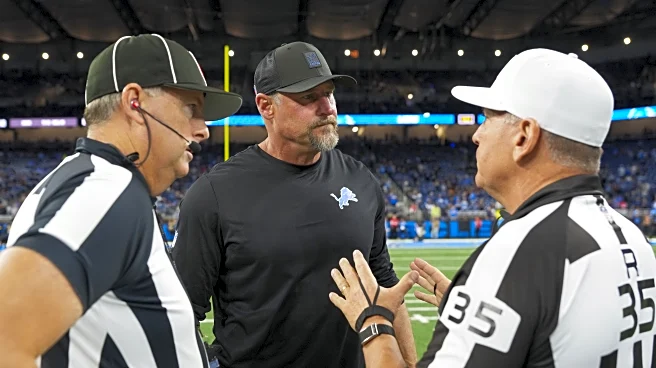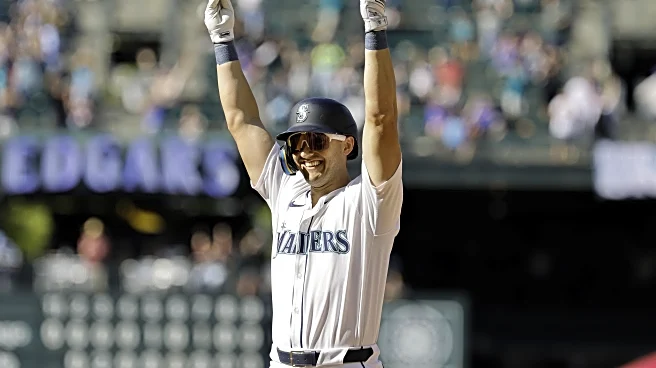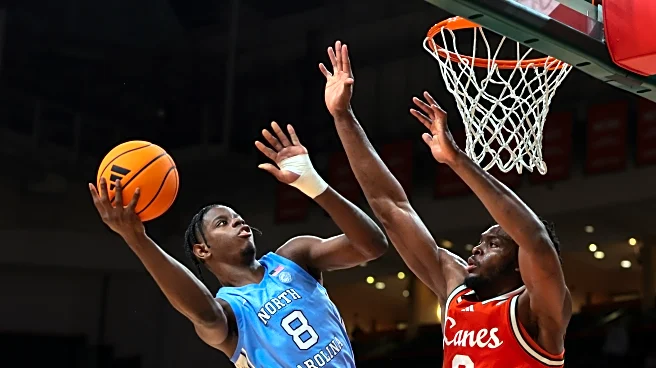The Detroit Lions were involved in another odd officiating situation on Monday night in their game against the Tampa Bay Buccaneers.
Early in the fourth quarter, the Lions challenged a play in which Buccaneers
tight end Cade Otton was ruled to convert a fourth-and-2. On the play, Otton caught the ball, reached forward near the line to gain, and when he hit the ground, the ball jarred loose, and the Buccaneers recovered. Officials initially ruled that Otton had earned the first down for the Buccaneers.
However, the Lions opted to challenge the play. Coach Dan Campbell confirmed on Tuesday that they were challenging whether Otton completed the process of the catch. The hope was that Otton had not yet completed the process prior to going to the ground, and because the ground jarred the ball loose, it would be considered incomplete. After a brief review, the officials determined that Otton had done enough prior to going to the ground (catch, two steps, and a football move—reaching for the first down) to complete the process of the catch, and determined the Lions had lost the challenge.
But that wasn’t the end of it. As the officiating crew waited for the broadcast to come back from commercial, they were called back to the review the spotting of the football. Here’s how NFL Vice President of Instant Replay Mark Butterworth explained what happened next in the post-game pool report.
“Later in the process we received an enhanced view from broadcast that showed that when the knee was down, the ball was short of the line to gain. We were having issues with the referee’s O2O (official-to-official communication system), which is why he was brought back to the monitor. We did not show him anything on the screen at that point, it was simply to communicate to clean up the ruling on the field.”
So despite the fact that the Lions were challenging a different aspect of the play, officials then initiated a review of the spotting of the football and ultimately concluded Otton was short of the line to gain.
It is specifically outlined in the rulebook that once a challenge is initiated, officials are allowed to review any aspect of the play. Here’s the official wording from Rule 15, Section 2, Article 2:
ARTICLE 2. SCOPE OF REVIEW. Once a review is initiated, all reviewable aspects of a play (Section 3) may be examined and are subject to change, even if not the specific reason for the challenge.
And, yes, it is still considered a successful challenge for the Lions, even if their reasoning for the challenge was not overturned. That is outlined in Rule 15, Sect 6, Article 1:
“A challenge is considered successful if any reviewable aspect of the play is changed.”
Were the officials right in overturning the spot of the ball? That’s for you to determine:
The Lions’ second challenge was perhaps even more confusing. On the play, Baker Mayfield was strip sacked and the Buccaneers had a clear recovery for a 2-yard gain. The official said the Lions were challenging “that the runner was down by contact short of the line to gain.”
That, quite simply, does not make sense. Bucs offensive tackle Tristan Wirfs recovered the fumble 5 yards short of the line to gain. The call on the field was that it would be third-and-5 for the Buccaneers.
So I asked Campbell to clarify the reasoning for the challenge, and he said he wanted to see if Mayfield was down before the fumble, that way Detroit would get all the negative yardage from the sack—negating the 2 yards gained from the forward fumble. However, the ball was out a few seconds before Mayfield hit the ground. Campbell admitted it was a terrible challenge.
“That was just a bad challenge. That was a total mess-up on my part,” Campbell said. “That was me thinking that he was down at the fumble site, and that’s more grasping for straws. I shouldn’t have done that. (If) you were totally like, ‘What the hell was he doing?’ you’d be correct.”
Some have speculated that Campbell was just trying to get his defense a breather in the midst of what became an 18-play drive from the Buccaneers, but if that’s the case, the Lions coach didn’t admit it.









